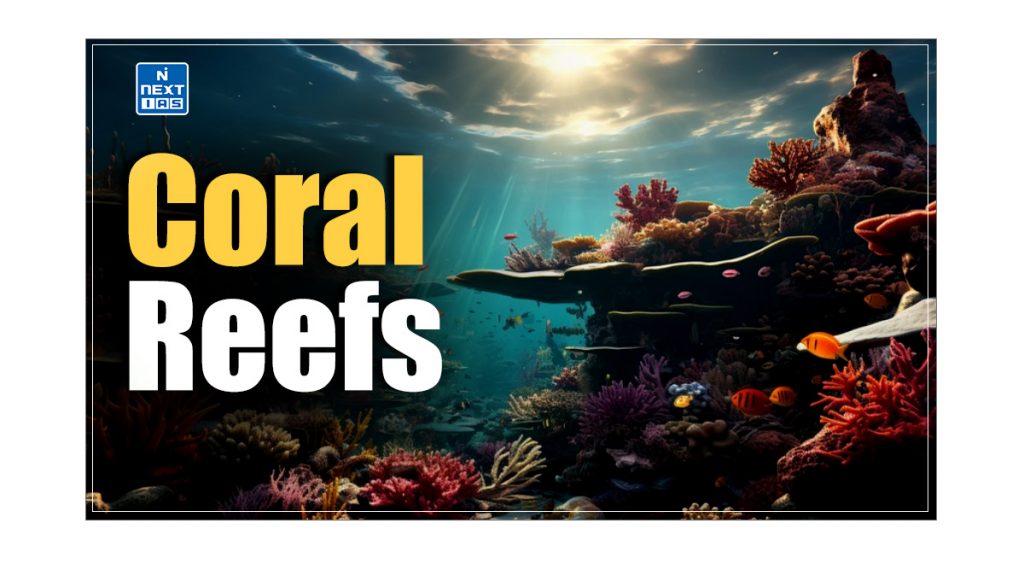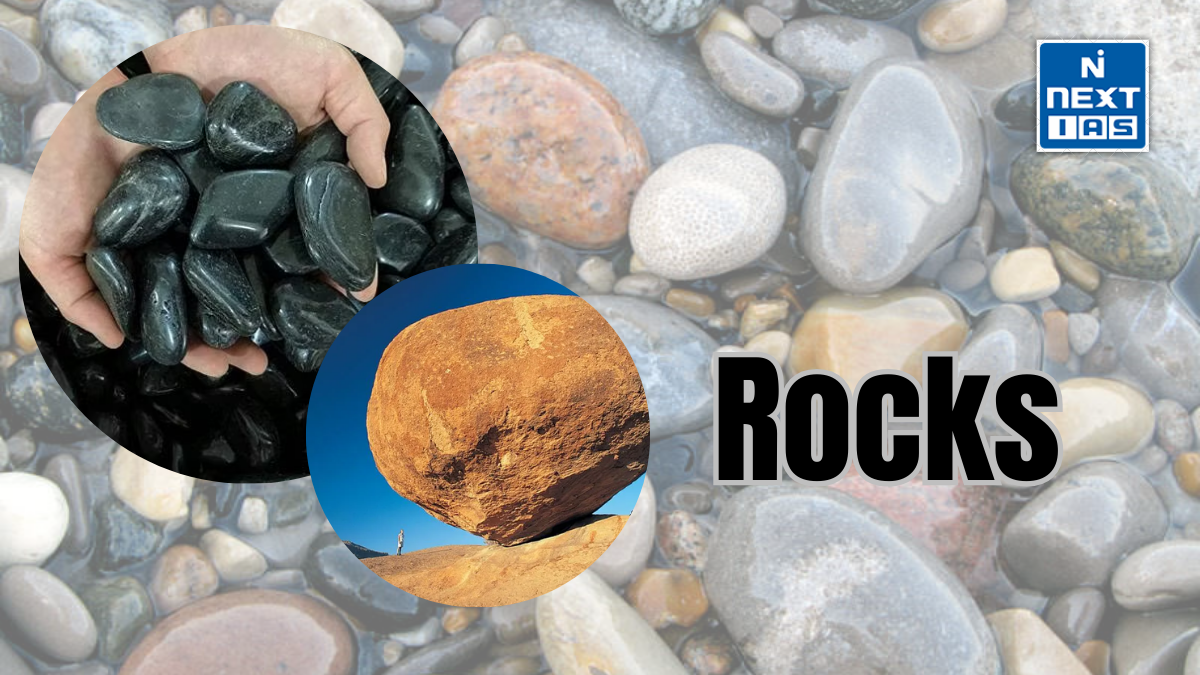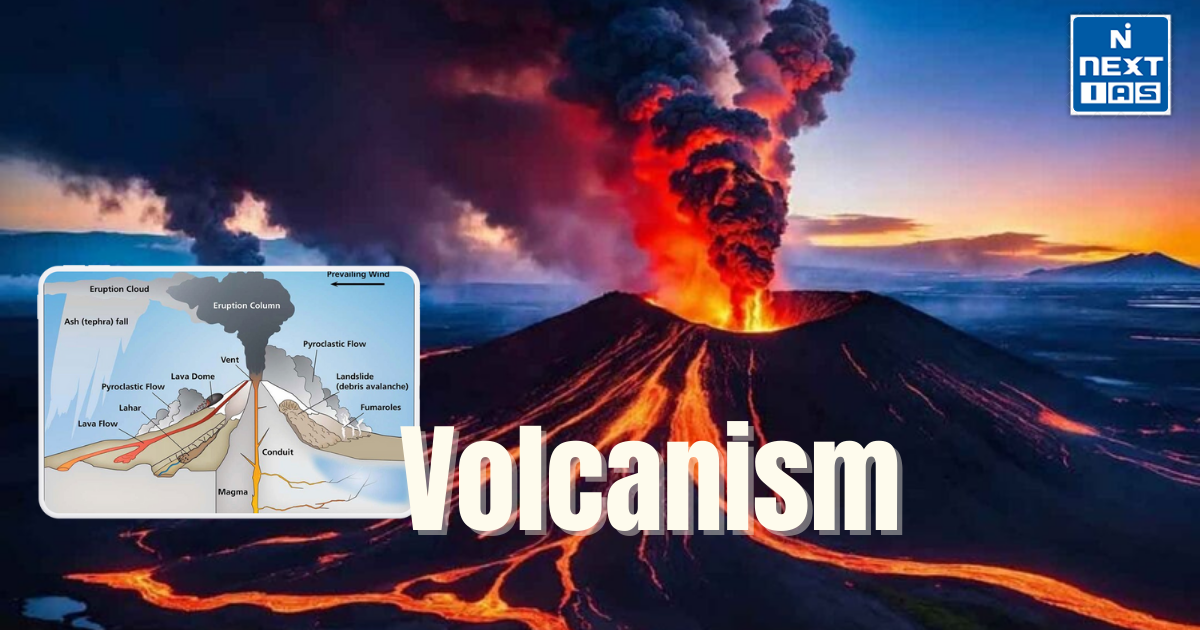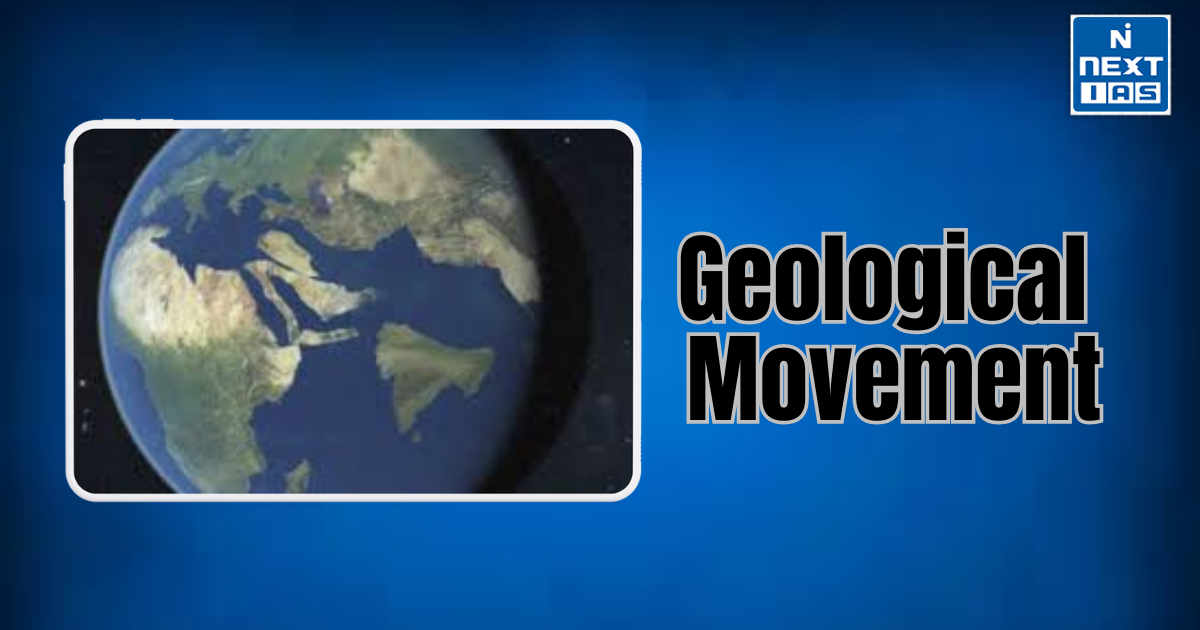
Coral reefs are vibrant marine ecosystems formed by colonies of coral polyps secreting calcium carbonate. Found in warm, shallow waters, they support immense biodiversity and provide critical ecosystem services, including coastal protection, fisheries, and tourism. Understanding and conserving coral reefs is vital for sustaining marine life and protecting coastal communities.
What are Coral Reefs ?
- Coral reefs are underwater ecosystems formed by the calcium carbonate skeletons of coral polyps, tiny marine animals that live in colonies. These reefs thrive in warm, shallow, tropical waters, typically between 23.5°N and 23.5°S latitude. Coral polyps secrete a hard exoskeleton that, over time, accumulates and forms the reef structure.
- Coral reefs support an extraordinary diversity of marine life, including fish, mollusks, crustaceans, and sea turtles, earning them the title of the “rainforests of the sea.” They provide essential ecosystem services, such as protecting coastlines from erosion, supporting fisheries, and promoting tourism. Coral reefs also contribute to the global carbon cycle by sequestering carbon through calcification.
- However, coral reefs face numerous threats, including climate change, ocean acidification, overfishing, and pollution. These factors lead to coral bleaching and reef degradation. Conservation efforts are critical to preserving these fragile ecosystems for future generations.
Formation of Coral Reefs
The formation of coral reefs is a complex, gradual process that occurs over thousands to millions of years. Coral reefs are created by the accumulation of calcium carbonate skeletons secreted by coral polyps, tiny marine invertebrates that form colonies. The key steps in their formation are:
Coral Polyp Settlement
- Coral polyps, which are small, soft-bodied animals, attach themselves to hard substrates like rocks or the remains of other corals in shallow, warm tropical waters.
- These polyps reproduce asexually, creating genetically identical clones that build the reef structure over time.
Calcium Carbonate Secretion
- As polyps grow, they secrete calcium carbonate (CaCO₃) to form their hard exoskeletons. This process of calcification contributes to the growth of the reef.
- Over time, as generations of corals grow and die, their skeletons accumulate and form the base of the reef.
Reef Growth and Expansion
- The reef grows in stages, starting as small colonies that expand laterally and vertically. Corals build upon older coral structures, and new polyps continue to grow over these accumulated skeletons.
- Reef growth is generally slow, averaging around 1-3 cm per year, but some reefs can grow several meters tall over millennia.
Symbiosis with Zooxanthellae
- Coral polyps have a mutualistic relationship with microscopic algae called zooxanthellae. These algae live within the corals’ tissues, providing them with food through photosynthesis and, in return, receiving shelter and nutrients from the corals.
- The presence of zooxanthellae is crucial for the health of coral reefs and contributes to their vibrant colors.
Reef Types
Coral reefs can take different forms depending on their location and environmental factors. These include:
- Fringing Reefs: Directly attached to the shore or separated by a narrow lagoon.
- Barrier Reefs: Separated from the shore by a larger lagoon (e.g., Great Barrier Reef).
- Atolls: Ring-shaped reefs that encircle lagoons, usually formed around submerged volcanic islands.
Environmental Conditions for Formation
- Coral reefs thrive in warm, shallow waters (typically between 23°C and 29°C), with clear, nutrient-poor water that allows sunlight to penetrate for photosynthesis.
- They also need stable salinity, low wave energy, and relatively calm water to protect the delicate coral polyps from damage.
Coral reefs are dynamic ecosystems, shaped by both biological processes (coral growth and interactions with other organisms) and environmental factors (water temperature, light, salinity). Their formation is a long-term process, but once established, coral reefs play a vital role in marine biodiversity, coastal protection, and carbon cycling.
Significance of Coral Reefs
Coral reefs are of immense ecological, economic, and social importance, providing numerous benefits to both marine environments and human communities. Here are the key reasons why coral reefs are significant:
Biodiversity Hotspots
- Coral reefs support around 25% of all marine species, despite covering less than 1% of the ocean floor. They provide habitats for thousands of fish, invertebrates, and other marine organisms.
- The intricate ecosystems formed by corals, fish, mollusks, and algae contribute to the overall health of the ocean.
Coastal Protection
- Coral reefs act as natural barriers, absorbing wave energy and protecting coastlines from erosion, storm surges, and the impact of hurricanes.
- They help reduce the destructive power of waves, preventing flooding and protecting human settlements, agricultural land, and infrastructure along coastlines.
Fisheries Support
- Coral reefs are crucial for global fisheries, providing breeding, feeding, and nursery grounds for many commercially important fish species.
- Approximately 1 billion people rely on coral reefs for their livelihoods, particularly those dependent on fishing and marine products.
Economic Value
- Coral reefs contribute to the global economy through tourism, especially in regions where they attract divers and snorkelers. Famous reef locations like the Great Barrier Reef generate significant revenue for local economies.
- Additionally, they support industries like pharmaceuticals by providing access to bioactive compounds found in reef organisms.
Climate Regulation
- Coral reefs contribute to carbon sequestration by absorbing and storing carbon dioxide through the process of calcification.
- By removing CO₂ from the atmosphere, coral reefs play a small but important role in regulating global climate and mitigating climate change effects.
Cultural and Aesthetic Importance
- Coral reefs hold cultural and spiritual significance for many indigenous and coastal communities, often being tied to their identity and traditions.
- The beauty and biodiversity of coral reefs provide aesthetic value and offer recreational opportunities for local and international visitors.
Scientific Research
- Coral reefs serve as natural laboratories for marine scientists studying marine biology, oceanography, and climate change.
- Understanding the health of coral reefs can provide important insights into the impacts of climate change, ocean acidification, and human activity on marine environments.
Carbon Cycling
- Coral reefs contribute to the global carbon cycle by trapping carbon in their calcium carbonate skeletons.
- Over time, this carbon can be stored in reef sediments, helping to reduce the concentration of carbon dioxide in the atmosphere.
Despite their immense importance, coral reefs face growing threats from climate change, ocean acidification, pollution, and overfishing. Their preservation is critical for maintaining marine biodiversity, protecting coastal communities, and ensuring the sustainability of ocean-based resources.
Threats to Coral Reefs
Coral reefs face numerous threats, many of which are driven by human activities and climate change. These threats endanger the delicate balance of these ecosystems, leading to degradation, coral bleaching, and biodiversity loss. The main threats to coral reefs are:
Climate Change and Ocean Warming
- Coral Bleaching: Rising sea temperatures cause corals to expel the symbiotic algae (zooxanthellae) living within their tissues, leading to coral bleaching. Without these algae, corals lose their vibrant color and the primary source of their food. Prolonged bleaching can result in coral death.
- Ocean Acidification: Increased CO₂ levels in the atmosphere also lead to more CO₂ being absorbed by the oceans, which lowers the pH of seawater. Acidic water reduces the corals’ ability to build their calcium carbonate skeletons, weakening their structures.
Pollution
- Nutrient Pollution: Excess nutrients from agricultural runoff, sewage, and industrial waste lead to algal blooms, which deplete oxygen levels in the water and block sunlight, suffocating corals.
- Plastic and Chemical Pollution: Plastic waste, pesticides, and other chemicals can poison marine life and damage coral tissues, making them more susceptible to diseases.
- Oil Spills: Oil can smother corals, blocking their access to sunlight and disrupting the ecosystem.
Overfishing and Destructive Fishing Practices
- Overfishing: Overharvesting of fish disrupts the balance of coral reef ecosystems. Depletion of fish populations can affect the health of the reef by disrupting the food chain.
- Destructive Fishing Methods: Blast fishing (using explosives) and cyanide fishing (using toxic chemicals) physically damage coral structures and poison marine life.
- Fishing with Unsustainable Gear: Coral reefs are sometimes damaged by large nets and other fishing gear that can destroy coral heads and habitats.
Coastal Development and Habitat Destruction
- Reclamation Projects: Land reclamation for tourism, urban development, and agriculture often leads to coral habitat destruction, as sediment runoff smothers coral reefs and reduces water quality.
- Tourism: Unregulated tourism, such as coral collection, anchor damage, and trampling, can harm reefs and disturb the fragile ecosystems.
Coral Diseases
- Coral Pathogens: Diseases such as white band disease and black band disease can devastate coral populations. These diseases, often exacerbated by stressors like pollution and warming waters, weaken coral health, leading to large-scale die-offs.
- Predation: Crown-of-thorns starfish, a natural predator of corals, have become a significant threat when their populations explode due to nutrient overloading, further stressing the reef ecosystem.
Invasive Species
- Non-native Species: Invasive species, such as the predatory crown-of-thorns starfish and certain algae, outcompete native species and can disrupt coral health and biodiversity.
- Alien Algae: Fast-growing algae species often overtake reefs, blocking sunlight and smothering corals, further stressing already vulnerable ecosystems.
Unsustainable Development and Mining
- Sand Mining: Sand and limestone extraction for construction can result in the destruction of coral habitats and contribute to sedimentation that smothers corals.
- Oil and Gas Exploration: Drilling and seismic activities associated with oil and gas exploration can disturb coral ecosystems, introducing pollutants and physical damage.
Natural Disasters
- Hurricanes and Cyclones: Strong storms can physically damage coral reefs by breaking off coral heads, uprooting organisms, and reducing reef health.
- Oceanic Changes: Natural events like El Niño can cause abrupt changes in water temperature, leading to coral bleaching and further stress on reefs.
The combined effects of these threats have placed coral reefs under immense pressure, with many reefs experiencing rapid degradation. Conservation efforts, including protecting reef habitats, reducing carbon emissions, and implementing sustainable fishing practices, are crucial to preserving these vital ecosystems.
Governments Steps For Coral Reefs
Governments around the world are taking various measures to protect and conserve coral reefs, recognizing their critical role in marine biodiversity, coastal protection, and the economy. These steps include legislation, international cooperation, and conservation initiatives aimed at reducing threats and ensuring the long-term health of coral reef ecosystems.
Creation of Marine Protected Areas (MPAs)
- Designating Marine Reserves: Governments have established MPAs where fishing, development, and other human activities are restricted or managed to reduce pressures on coral reefs. For example, Australia’s Great Barrier Reef Marine Park is one of the largest and most well-known MPAs, protecting over 344,000 square kilometers of coral reefs.
- Zoning Regulations: Within MPAs, specific zones may be designated for sustainable use, such as eco-tourism or controlled fishing, to ensure that coral reefs are preserved while still allowing some human interaction.
Enforcing Sustainable Fishing Practices
- Fishing Regulations: Governments have introduced laws to limit overfishing, regulate fishing gear, and protect vulnerable species in reef ecosystems. Measures such as fishing quotas, restrictions on certain fishing methods (e.g., blast fishing), and seasonal fishing bans help prevent the depletion of fish stocks and reduce the physical impact on coral reefs.
- Combating Illegal Fishing: International cooperation is essential in addressing illegal, unreported, and unregulated (IUU) fishing activities that threaten coral reefs. Governments work together through conventions and agreements to combat these practices.
Climate Change Mitigation Efforts
- Reducing Carbon Emissions: Recognizing the role of climate change in coral bleaching, governments are working to reduce greenhouse gas emissions through international agreements like the Paris Agreement. Some countries have set targets for renewable energy and energy efficiency to mitigate the warming of oceans.
- Supporting Coral Resilience Projects: Some governments fund research and projects aimed at enhancing coral resilience to climate change, such as breeding heat-resistant coral species or promoting coral restoration techniques.
Pollution Control and Regulation
- Regulating Waste Disposal: Governments have implemented regulations to limit pollution from land-based sources, such as agricultural runoff, sewage, and industrial discharge. For example, the use of chemical fertilizers and pesticides is controlled to prevent nutrient loading, which can lead to algal blooms that smother coral reefs.
- Plastic Waste Reduction: Governments are introducing bans on single-use plastics and implementing waste management strategies to reduce marine litter, which can harm coral ecosystems.
- Oil Spill Prevention: Some nations have enacted stricter regulations and enforcement mechanisms to prevent and mitigate the impact of oil spills, which can devastate coral reefs.
Restoration and Conservation Programs
- Coral Restoration Projects: Governments, in collaboration with environmental organizations, support coral restoration efforts, such as transplanting nursery-grown corals to damaged reefs. These programs aim to rehabilitate degraded coral reefs and reintroduce biodiversity to areas affected by bleaching or pollution.
- Supporting Scientific Research: Governments often fund research into coral reef health, including studies on coral species, marine biodiversity, and the impacts of climate change, to inform conservation strategies and management policies.
Public Awareness and Education
- Promoting Eco-tourism: Governments encourage sustainable eco-tourism, ensuring that tourism activities such as snorkeling and diving are carried out responsibly, minimizing harm to coral reefs.
- Educational Campaigns: Public awareness campaigns are launched to educate communities, industries, and tourists about the importance of coral reefs and the threats they face. These campaigns often focus on reducing human impacts, such as coral collection, trampling, and littering.
International Cooperation and Agreements
- Regional Cooperation: Coral reefs do not adhere to national boundaries, so regional cooperation is critical for their protection. Organizations like the Coral Triangle Initiative, which includes countries like Indonesia, the Philippines, and Papua New Guinea, work together to protect coral reefs in the Coral Triangle, one of the most biodiverse marine regions on Earth.
- Global Agreements: Governments engage in global efforts such as the United Nations’ Convention on Biological Diversity (CBD) and the Ramsar Convention to conserve and sustainably manage marine ecosystems, including coral reefs.
Funding and Incentives
- International Aid: Some governments provide financial assistance to developing countries for coral reef conservation efforts, helping them establish protected areas, implement sustainable fishing practices, and build resilience to climate change.
- Incentives for Sustainable Practices: Governments may offer incentives for industries, particularly tourism and fishing, to adopt sustainable practices that minimize their impact on coral reefs. For instance, businesses might be encouraged to obtain eco-certifications for practicing responsible reef tourism.
Monitoring and Enforcement
- Surveillance and Enforcement: Governments implement monitoring systems and use technologies like satellite imagery, drones, and underwater cameras to track the health of coral reefs, monitor illegal activities, and enforce regulations.
- Penalties for Violations: Strict penalties for illegal activities such as destructive fishing or coral harvesting help deter harmful practices and protect reef ecosystems.
Way forward
The way forward for coral reefs involves global cooperation to combat climate change, reduce pollution, and establish more marine protected areas. Efforts should focus on sustainable fisheries, coral restoration, and enhancing resilience to warming oceans. Public awareness and investment in conservation programs are essential to safeguard these vital ecosystems.
Conclusion
Coral reefs are essential ecosystems providing biodiversity, coastal protection, economic value, and environmental benefits. Their conservation is crucial for sustaining marine life, supporting livelihoods, and mitigating climate change impacts. Protecting coral reefs ensures the continued provision of these vital services for current and future generations.
GS - 3





